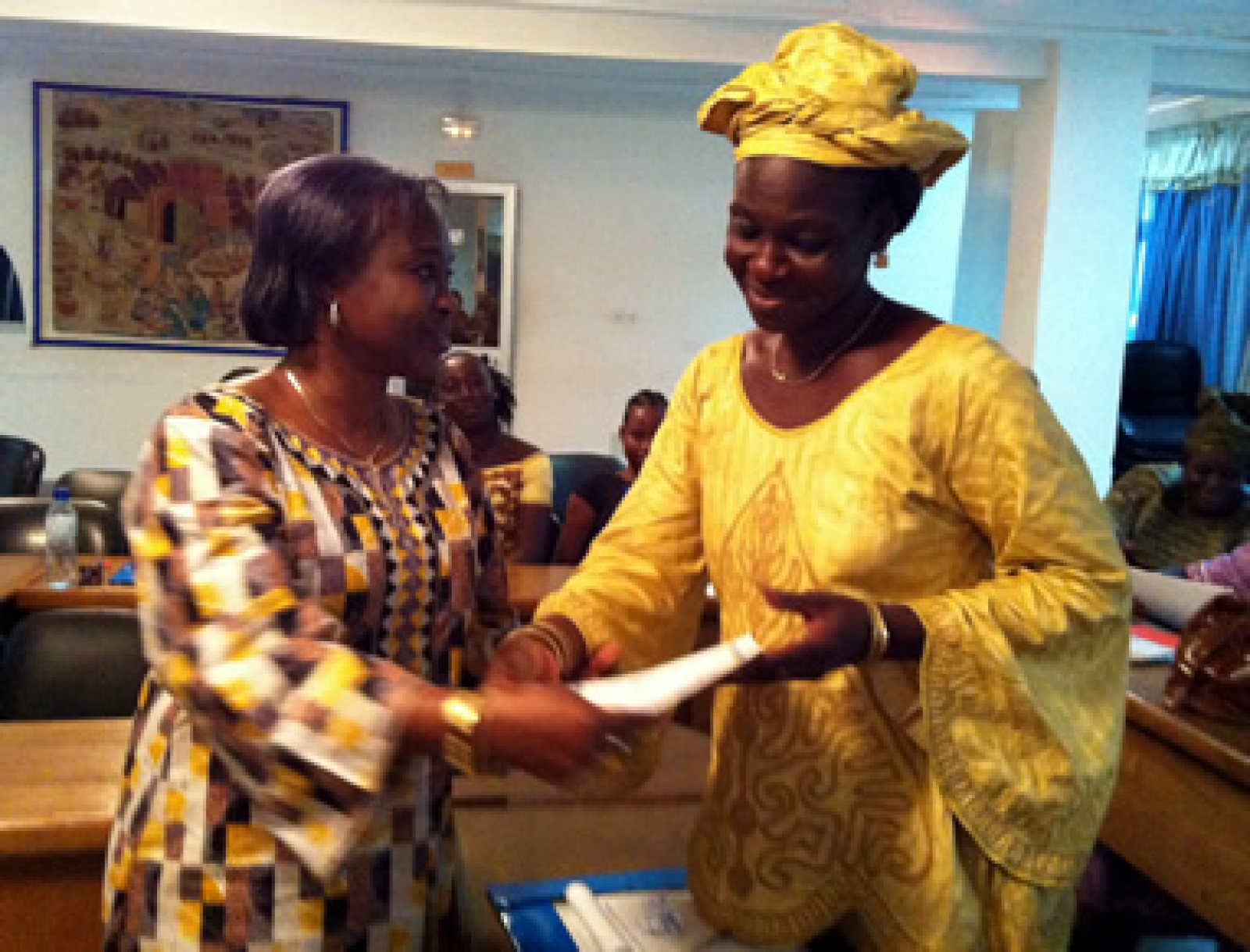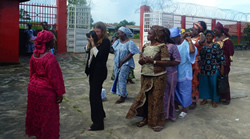
SHARE
As countries across West Africa transition to democracy following years of autocratic rulers, civil unrest, and sometimes civil war, women are frequently left out of the process. Though they make up more than half of the population, women are often excluded from politics by rigid social norms, opaque party structures and other societal hurdles.
Yet democracies with more women in power have been shown to yield more equitable societies, have less corruption, and make more advancements in education, infrastructure and health standards.
One way to address the shortfall of women in leadership positions is through one-on-one training to help them gain the skills they need to compete effectively. And the women benefit from networking that offers them support across party lines as they face common challenges and hurdles.
In two West African countries that recently held elections, Burkina Faso and Sierra Leone, more women than ever before ran for election. To help them get on the ballot and compete successfully, NDI organized a series of candidate training schools in both countries for women running for national and local offices.
In Burkina Faso, the country’s 2009 quota law was applied for the first time in Dec. 2 National Assembly and municipal council elections. The law encourages political parties to include at least one woman for every two men on party candidate lists. But many women lacked the necessary training and support within their parties to position themselves high enough on the lists to actually be elected.
NDI’s candidate schools focused on identifying challenges and opportunities for women candidates, building support within parties and communities for favorable placement on candidate lists, creating winning messages, recruiting volunteers and supporters, managing a campaign and identifying potential supporters.
“During the first training we’ve learned a lot,” said Sita Ouattara, a parliamentary candidate for Burkina Faso’s ruling CDP party in Bobo Dioulasso. “We were provided with the right tools and we've learned how to position ourselves as candidates on our parties' lists. At the last training session, you told us that women of the same party should first and foremost find synergy. This was done. We now work together, and we have created a small team in charge of discussing matters with provincial leaders to promote our potential candidates so that our party can win in our province. The party gave consideration to some of our concerns, and today we are on the list and we're happy about that.”
Once women clear the hurdle of getting nominated on a party list, they often have little support within their party for what comes next, and there are few role models to turn to. To help with this problem, NDI organized a second campaign school aimed at training nearly 400 Burkinabe women who made it onto party lists. They learned to research issues and constituents, identify voters, communicate key messages and get voters to the polls on election day. They also practiced public speaking and door-to-door persuasion. Though final election results are still being announced for the National Assembly and are yet to be announced for the local councils, half of those elected to parliament participated in one or both of the campaign schools, and all are alumni from NDI’s capacity-building programs on women’s political participation.
The Institute also published a training manual, A Practical Guide for Women Legislative Candidates, that went to each participant. A compilation of NDI’s best campaign practices and strategies based on its 30 years of working with women candidates around the world, the manual also reflected the specific challenges facing Burkinabe women. A second manual was designed for women running at the municipal level. Following the candidate schools, NDI distributed copies of both manuals to all political parties competing in the elections.
 In Sierra Leone, women get their pictures taken for campaign literature. Photo by Katie Croake, NDI resident program manager. |
In Sierra Leone, where voters went to the polls Nov. 17 to vote in general elections, women faced opaque and highly competitive internal party nomination processes that included few -- if any -- women in decision making roles. NDI candidate training schools helped them navigate those limitations and present strong cases for their inclusion on party lists.
“Today I got my party’s nomination,” said Yeallie Koroma, a ruling party candidate for local council in Sierra Leone. “Now my greatest challenge is organizing a better campaign to convince voters to vote for me.”
Another benefit of women’s campaign schools is bringing women of different parties and backgrounds into one room where they can learn from each other and appreciate the benefits of working across party lines. “We women need to support each other regardless of party to get ahead,” said a local council candidate in Sierra Leone, where more than 300 women from 10 parties attended school. The bonds formed during the sessions can carry over once the women gain office, creating multipartisan networks of women legislators willing to work together for improvements in education, health, gender equality and other issues.
Seventy-five women ultimately made it onto parliamentary candidate lists, and 337 women were nominated for local council in Sierra Leone. Fifteen won in parliament (or 13 percent of the total), of which 10 participated in NDI training schools. Eighty-seven won in local councils (or 19 percent of all councilors), of which 74 had attended the schools.
Read more:
- Leadership academy prepares young women for political careers in Burkina Faso»
- DRC women running for office with help from global women's network»
- Young women leaders collaborate at North African regional conference»
- Ukrainian women leaders learn from U.S. counterpart»
- 'Future women mayors' academy kicks off in Mexico»
- Mayan women train one another to increase their political voice»
Published Dec. 20, 2012


